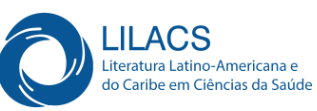O conceito de alianças inconscientes como fundamento ao trabalho vincular em psicanálise
DOI:
https://doi.org/10.5433/2236-6407.2015v6n2p92Palavras-chave:
teoria psicanalítica, psicanálise de grupo, René Kaës, psicoterapia de grupoResumo
A relação indivíduo-sociedade é um desfio ao pensamento nas ciências humanas e sociais em geral e para a psicanálise em particular. Neste artigo, objetiva-se a apresentação e sustentação da lógica contratualista em psicanálise como fundamento para o trabalho vincular (com casais, famílias, grupos e instituições). A partir do estudo atento de dois textos sociais de Freud, busca-se caracterizar a noção de contrato no autor. Em seguida, apresenta-se o conceito de alianças inconscientes, de René Kaës, como um desenvolvimento possível dessa noção. Conclui-se sobre as especificidades e a potencialidade do conceito de alianças inconscientes para contribuir para o debate da relação indivíduo-sociedade em geral e sobre sua pertinência e utilidade como fundamento para o trabalho psicanalítico vincular.
Downloads
Referências
Barros, R. B. (2009). Grupo: A afirmação de um simulacro. (2. ed.) Porto Alegre, RS: UFRGS.
Fernández, A. M. (2006). El campo grupal: Notas para una genealogía. Buenos Aires, AR: Nueva
Visión. Freud, S. (1999). Das Unbehagen in der Kultur. Frankfurt am Main: Fischer Taschenbuch Verlag. (Trabalho original publicado em 1930).
Freud, S. (1999). Totem und Tabu. Frankfurt am Main: Fischer Taschenbuch Verlag. (Trabalho original publicado em 1913).
Freud, S. (2010). O Mal-Estar Na Civilização. In S. Freud Obras Completas (vol. 18, pp.13-122). São Paulo, SP: Companhia das Letras. (Trabalho original publicado em 1930).
Freud, S. (1999). Massenpsychologie und Ich-Analyse. Frankfurt am Main: Fischer Taschenbuch Verlag. (Trabalho original publicado em 1921).
Freud, S. (1999). Zur Einführung des Narziβmus. Frankfurt am Main: Fischer Taschenbuch Verlag. (Trabalho original publicado em 1914).
Freud, S. (2010). Introdução ao Narcisismo. In S. Freud Obras Completas (vol. 12, pp.14-50). São Paulo, SP: Companhia das Letras. (Trabalho original publicado em 1914).
Freud, S. (2011). Psicologia das Massas e Análise do Eu. In S. Freud Obras Completas (vol. 15, pp.13-113). São Paulo, SP: Companhia das Letras. (Trabalho original publicado em 1921).
Freud, S. (1973). Obras Completas. Madrid: Biblioteca Nueva. Hanns, L. (1996). Dicionário Comentado do Alemão de Freud. Rio de Janeiro, RJ: Imago.
Herzog, R. (2003). O estatuto da Bindung na contemporaneidade. Interações, 8(16), 37-56.
Kaës, R. (1993). Le groupe et le sujet du Group. Paris: Dunod. Kaës, R. (2000). L’appareil psychique groupal. Paris: Dunod. (Trabalho original publicado em 1976).
Kaës, R. (2005). Os Espaços Psíquicos Comuns e Partilhados. São Paulo, SP: Casa do Psicólogo.
Kaës, R. (2006). Un Singulier Pluriel La psychanalyse à l´épreuve du groupe. Paris: Dunod.
Kaës, R. (2007). Linking, Alliances and Shared Spaces. London: The International Psychoanalitical Association.
Kaës, R. (2009). Les Alliances Inconscientes. Paris: Dunod. Laplanche, J. Pontalis, J.-B. (1986). Vocabulário de Psicanálise. (9. Ed). São Paulo, SP: Martins Fontes. (Trabalho original publicado em 1967).
Laplanche, J. Pontalis, J.-B. (1986). Vocabulário de Psicanálise. (9. Ed). São Paulo, SP: Martins Fontes. (Trabalho original publicado em 1967).
Pichon-Rivière, E. (2000). Teoria del Vínculo. Buenos Aires: Nueva Visión.
Downloads
Publicado
Como Citar
Edição
Seção
Licença
Copyright (c) 2015 Estudos Interdisciplinares em Psicologia

Este trabalho está licenciado sob uma licença Creative Commons Attribution 4.0 International License.
Estudos interdisciplinares em Psicologia adota a licença CC-BY, esta licença permite que os reutilizadores distribuam, remixem, adaptem e criem a partir do material em qualquer meio ou formato, desde que a atribuição seja dada ao criador. A licença permite o uso comercial.
Este obra está licenciado com uma Licença Attribution 4.0 International (CC BY 4.0)





















